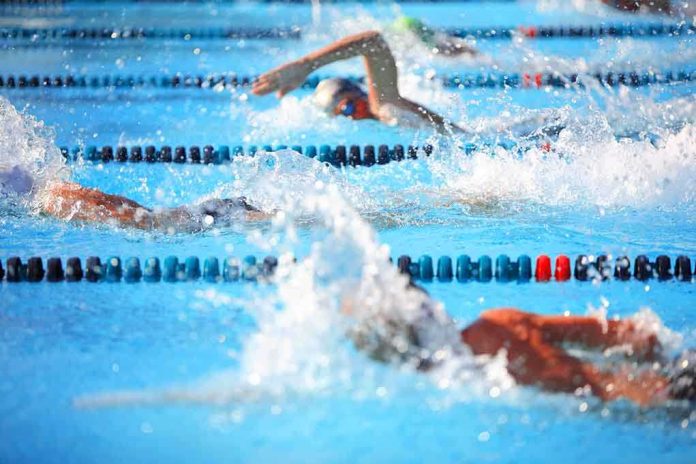
The Biden administration funneled over $1 million into swimming pool upgrades in war-torn countries, leaving many Americans baffled and outraged.
At a Glance
- Over $1.2 million allocated for swimming pool upgrades abroad under Biden.
- Projects aimed at promoting diplomacy and goodwill in conflict zones.
- Public and political scrutiny over spending priorities during economic strain at home.
- Debate over the effectiveness and appropriateness of such expenditures.
A Questionable Allocation of Funds
In an era where every penny counts and Americans are grappling with inflation and economic instability, the revelation of the Biden administration’s decision to allocate over $1.2 million for swimming pool upgrades in countries engulfed in conflict is stirring up a storm of controversy. This move, justified under the guise of fostering goodwill and enhancing diplomatic presence, raises serious questions about the administration’s priorities. How can spending on recreational facilities be justified when there are pressing humanitarian crises that demand immediate attention?
Projects like these, typically funded through embassy-managed budgets or public diplomacy grants, have historically been part of U.S. foreign aid. But the timing and nature of these expenditures are what have caught the public eye. With domestic economic pressures mounting, many Americans are questioning why their tax dollars are being spent on pools overseas instead of addressing urgent needs at home.
Stakeholders and Motivations
The primary agency behind this initiative is the U.S. State Department, with local embassies and consulates playing pivotal roles in identifying and managing these projects. The host country governments and local authorities are involved in implementing and maintaining the facilities, while local communities are the intended beneficiaries of these upgrades.
The State Department argues that these projects advance U.S. interests by building goodwill and providing safe recreational spaces. However, critics are quick to point out that the optics of such spending are poor when juxtaposed against the backdrop of urgent humanitarian needs in these regions. It’s a classic case of misaligned priorities, where the allure of diplomatic engagement overshadows the pressing realities on the ground.
The Fallout and Public Response
As expected, the revelation of these expenditures has not gone unnoticed. Media outlets and watchdog groups have highlighted the issue, prompting public and political scrutiny. The State Department stands by its decisions, yet the criticism continues to mount, particularly from Congress, which is now questioning the wisdom behind such spending.
The projects, reportedly underway or completed, have not seen any major public reversals or policy changes from the State Department. However, the ongoing debate in congressional discussions about foreign aid priorities suggests that this issue is far from resolved. It’s a classic case of government overreach and misguided spending, plain and simple.
A Broader Implication for Foreign Aid
In the short term, these swimming pool upgrades might provide improved recreational facilities for local communities and perhaps a minor diplomatic win for the U.S. But in the long term, the broader implications are unclear. If these projects are perceived as wasteful or misaligned with urgent needs, it could lead to reputational damage and a loss of trust both domestically and abroad.
Critics argue that these funds could be better spent on addressing core humanitarian or security objectives, aligning aid with local priorities and needs. The controversy surrounding this issue may influence future foreign aid allocations, urging a re-evaluation of how embassies design public diplomacy initiatives and a push for stricter oversight.
Sources:
Fiscal Year 2026 Discretionary Budget Request



